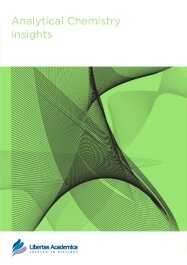

Publication Date: 14 Nov 2007
Journal: Analytical Chemistry Insights

Department of Nutrition Sciences, University of Alabama at Birmingham, AL 35294.
Abstract: The measurement of folate in red blood cells (RBCs) is preferred since it reflects long-term folate status in the body compared to plasma/serum folate which may be influenced by recent dietary intake. The commonly accepted technique for RBC folate analysis involves preparation of a hemolysate using a fresh whole blood sample. Hematocrit and plasma folate concentrations are needed to calculate RBC folate values. Because of the need for immediate access to a laboratory where processing can be performed, it may not be practical to assess RBC folate status using this method in field-based epidemiological studies. It is however, feasible to isolate packed RBSs from a blood sample under these conditions. The purpose of this study is to validate RBC folate analysis using packed red cells by comparing the RBC folate values obtained by hemolysate method (routine assay) with those obtained by using packed RBCs (new assay) in the same individuals (n = 50) using the folate microbiological assay. The correlation between plasma folate and the routine RBC folate assay (r = 0.58, p = 0.001) and the correlation between plasma folate and the new RBC folate assay was statistically signifi cant (r = 0.55, p = 0.001). The correlation between RBC folate by the routine assay and new assay was also statistically significant (r = 0.78, p < 0.001). We conclude that measurement of folate in packed RBC is a practical approach in assessing long-term folate status in fi eld-based and or larger scale epidemiological studies where an immediate access to a laboratory is unavailable for necessary sample processing for the routine RBC folate assay.
PDF (221.56 KB PDF FORMAT)
RIS citation (ENDNOTE, REFERENCE MANAGER, PROCITE, REFWORKS)
BibTex citation (BIBDESK, LATEX)
XML
PMC HTML

I have published more than thirty research papers in internationally reputed high impact factor journals including Libertas Academica publications, Proteomics Insights and Analytical Chemistry Insights. I have no hesitation in saying that Proteomics Insights is highly efficient for its rapid and high quality review process and keeping the authors informed at each stage of the publication process. I recommend this journal for students, teachers and research workers who wish to publish their work. ...

All authors are surveyed after their articles are published. Authors are asked to rate their experience in a variety of areas, and their responses help us to monitor our performance. Presented here are their responses in some key areas. No 'poor' or 'very poor' responses were received; these are represented in the 'other' category.See Our Results
Copyright © 2013 Libertas Academica Ltd (except open access articles and accompanying metadata and supplementary files.)
FacebookGoogle+Twitter
PinterestTumblrYouTube